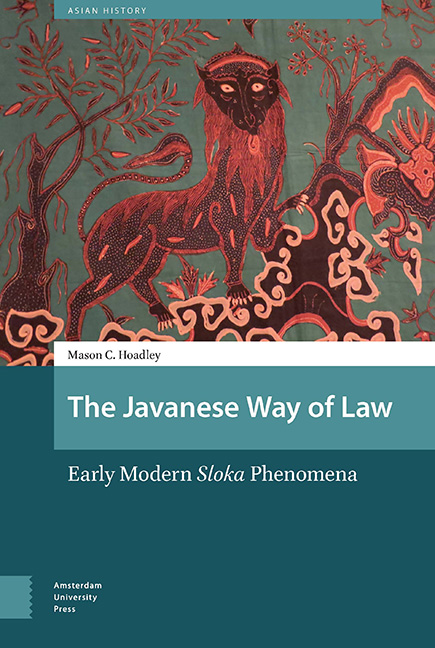Summary
An appropriate follow-up of Aji Saka's sloka expressed in aksara is aksara authorized by sloka. The characteristic function of aksara, unique to Independent Kingdoms’ law, was to provide a block of applicable provisions, often expressed in sloka, to supplement general statements of ‘what ought to be’. They thus fill an obvious shortcoming of sloka, whose contents are seldom sufficiently specific to be used for judicial settlements. Even within the texts consulted here sloka apply to only a small number of affairs. These mostly concern the sovereign and his personal property, as in the case the golden image of King Mahapunggung. In contrast, aksara provide rules that can be decided in court. As such they stand between sloka statements of legal/moral principles and sinalokan ex post facto comments (Chapter 5).
Origins
At the outset it must be acknowledged that there exists very little information regarding the origins of aksara as part of the legal tradition. Even terms such as ‘immortal’ ‘unchangeable’ (Skr. a-ksara = not-changeable) lack specific definition. There seems no demonstrable connection to what little is known of the traditions preceding the period of Independent Kingdoms. This stems primarily from lack of access to ‘Old Javanese’ legal texts with a defined date and provenance. By default, one is limited to the Agama – Jonker's Kuntara Manawa – whose shortcomings as a representative of that era have been pointed out by its most recent editors. In any event, the Agama, as well as other Java-Bali titles, are to all intents and purposes free of sloka phenomena, including the aksara in the meaning used here.
A way out of the dilemma of aksara as something other than letters of the alphabet which seemed promising upon further scrutiny is undermined by a crippling difficulty. The promise comes from a generally overlooked paragraph in Zoetmulder's Old Javanese-English Dictionary. It provides an extended meaning of aksara, namely: ‘aksaraji’ (aksara + aji), defined as ‘the ‘royal science, the code of kings (ksatriya)’. ‘Prohibitions of the aksara’ cited by the opening paragraphs of the Jaya Lengkara stating its intention, comes close to the meaning proposed by Zoetmulder. However, difficulties arise from the lack of specification of what was meant by royal science.
- Type
- Chapter
- Information
- Javanese Way of LawEarly Modern Sloka Phenomena, pp. 91 - 110Publisher: Amsterdam University PressPrint publication year: 2019

